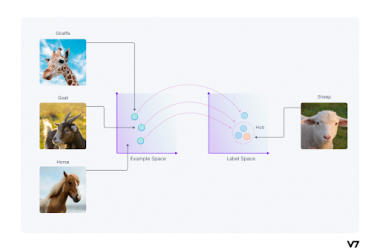From the eye of the CCTV camera to the retina of artificial intelligence, there is a debate on the rising use of Automated License Plate Recognition (ALPR) technology. Despite its many benefits and features, the debate also takes the ethical landscape of ALPR technology into consideration.
While privacy is a fundamental human right, security measures are also necessary for societal protection. So, where do we draw the line? How can we strike a fair balance between these two important factors?
Using ALPR Technology for the Benefits
To understand the ethical landscape of ALPR technology, let’s consider its benefits first:
Crime Prevention and Investigation
ALPR technology plays a significant role in crime prevention and investigation. At first, it identifies suspicious activities. Then, spots stolen vehicles, followed by gathering evidence. This is how it optimizes and enforces law enforcement efforts.
As far as the benefits of ALPR go, this is one of the most significant benefits of embracing this technology. It has proven to be an invaluable tool in crime prevention.
Traffic Management and Parking Enforcement
A smooth traffic flow and parking compliance are dependent on ALRP technology. This is because of the quick and accurate identification of violations. Unauthorized parking or expired permits are real-time issues managed by ALPR technology.
It helps in maintaining order and decreasing traffic congestion on the roads. Ultimately, it enhances efficiency and provides valuable data for analyzing traffic patterns and creating urban planning strategies.
Amber Alerts and Missing Persons Cases
Another prominent benefit of ALPR is that it quickly disseminates Amber Alerts. Not only that, it also locates the missing persons. This is possible by utilizing advanced scanning techniques and cross-referencing license plate data with comprehensive databases.
ALPR systems also speed up the search and reunion process. It encourages the efficiency of law enforcement agencies. Additionally, it increases the chances of successful results in locating and reuniting missing individuals with their loved ones.
Border Security and Immigration Control
For border security and immigration control, license plate recognition application technology offers a whole new method to secure the borders. Advanced intelligent algorithms enable constant monitoring of border crossings. This technology also facilitates the regulation of these crossings.
Also, it helps in tracking unauthorized entries or exits. This provides valuable data to strengthen national security and immigration control efforts. Besides, the identification of potential threats protects the integrity of border operations.
Privacy Concerns of ALPR Technology
We cannot develop an eye for the ethical landscape of ALPR technology without shedding light on privacy concerns.
Mass Surveillance and Data Collection
In contrast to the investigation, the vast data collection by ALPR systems often raises concerns as it can indirectly lead to mass surveillance of population movements. The continuous logging of license plate information can compromise individual privacy.
When it is often without explicit consent, it can include personal details such as names, addresses, and relevant vehicle information. This may or may not be accepted by the masses.
Potential For Misuse and Discriminatory Practices
There are chances of ALRP data to be misused. Especially when there is a lack of stringent regulations. This may include profiling based on vehicle movement patterns or targeting specific neighborhoods.
Privacy concerns have also increased with the growing use of ALPR technology in law enforcement and other areas. Hence, it proved how the potential for misuse or unauthorized access to collected data had been a significant concern.
Effect on Freedom of Movement and Association
Every individual likes to have an independent lifestyle. However, the ALRP system does not support this agenda quite often. The pervasive fear of being constantly tracked by technology systems can profoundly impact individuals’ ability to move and associate freely.
This fear can create a chilling effect on these fundamental freedoms. People may find themselves hesitant to exercise their right to privacy. Eventually, altering their everyday behavior to avoid detection and surveillance. Overall, it feels like a self-imposed limitation on personal mobility and social interaction.
Potential Solutions for Ethical Landscape of ALPR Technology
Strong Data Protection Laws and Regulations
Navigating the challenges of ALPR technology requires robust solutions. It demands frameworks to address privacy concerns. Strong data protection laws and regulations are crucial in this case. They are capable of ensuring transparency, accountability, and safeguarding individual rights.
De-identification and Anonymization of Data
Another pragmatic solution goes out for the de-identification and anonymization of collected data. It is possible to protect individual identities simply by removing personally identifiable information. This solution can protect individual identities. Thus, mitigating potential privacy risks. This practice leads to the beneficial use of ALPR technology without compromising individual privacy.
Public Debate and Community Engagement
Communication serves as half the solution. That is why public debate and community engagement are vital components of this discussion. In an open dialogue, raising awareness of the technology, its uses, and possible ethical pitfalls is possible. This dialogue can help build trust between the public and the authorities using ALPR technology.
Development of Ethical Guidelines for ALPR
These guidelines should depict the acceptable and unacceptable practices. Eventually, boundaries will be set on how and when the technology can be used. Doing so strikes a balance between meeting security needs and respecting individual privacy rights.
Conclusion
To sum it up, the ethical landscape of ALPR technology is complex and multidimensional. While it offers valuable contributions to crime prevention, concerns such as mass surveillance, potential misuse, and impact on freedom of movement and association cannot be overlooked.
However, by implementing robust data protection laws and establishing ethical guidelines, we can address these concerns. We can strike a balance between security and privacy, but for that, we need the government to take the necessary steps for the responsible use of ALPR technology.
Public awareness, transparency, and trust are crucial for responsible implementation. Moreover, law enforcement agencies must continuously evaluate the ethical implications of ALPR and make necessary adjustments. With proper regulation and awareness, we can achieve a harmonious integration of security and privacy for ALPR technology.










